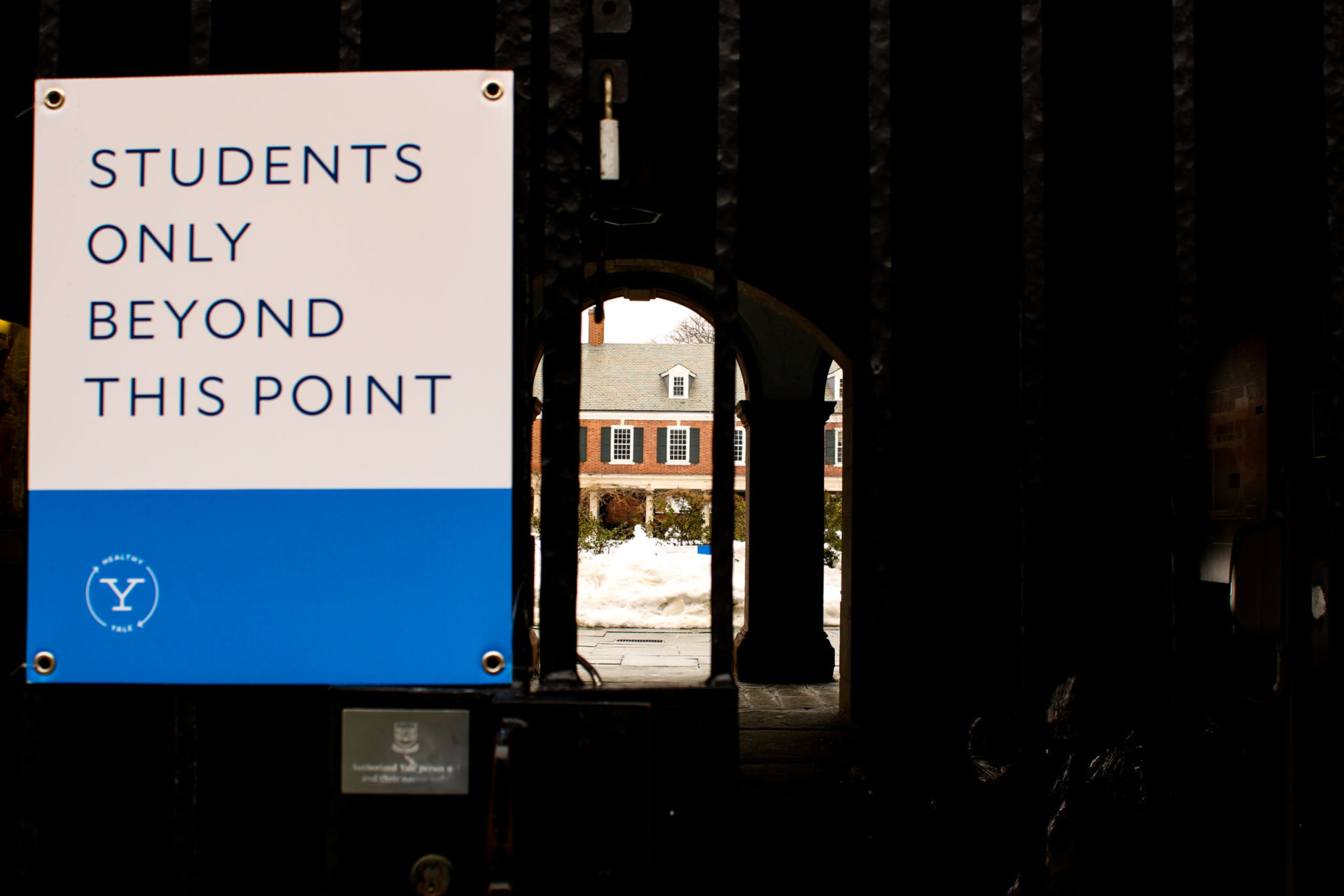
Jessie Cheung
Due to the COVID-19 pandemic, Yale’s 14 residential colleges made many changes in their dining hall and facilities operations to abide with Centers for Disease Control and Prevention social gathering and distancing guidelines. Yale’s Health Guidelines defined university safety procedures for the fall 2020 and spring 2021 semesters, limiting the use of residential spaces as well as indoor dining.
Undergraduate students both on and off campus enrolled in the Yale COVID-19 screening program, which was the viral testing system administered through the University. Students enrolled on campus must have taken a test at their residential college’s testing site on arrival and later follow a biweekly testing schedule assigned by the program. All enrolled students, on or off campus, in New Haven had to be tested twice a week.
“Berkeley students got tested at Grace Hopper College this year,” said Berkeley Head of College David Evans. Meanwhile “Pierson shared a testing site found in Davenport [College’s] common room,” Tanya Wiedeking, operations manager of Pierson college, told the News.
Testing was among the most important public health measures in keeping Yale safe amid the COVID-19 pandemic, with efforts from the School of Medicine and the Yale New Haven Hospital ensuring that there was sufficient testing availability. The residential colleges made up a majority of the University’s testing locations, with on-campus students restricted to their college or nearby college’s testing space and off-campus students allowed at all testing sites.
Unlike previous years, students were only allowed to obtain food from their own residential college’s dining hall and were encouraged to either bring food back to their dorm or eat outside and socialize with other members of the college while maintaining six feet of distance. Because many of the residential college facilities and spaces were closed, Wiedeking says “the courtyard was more heavily used for socializing, meeting, eating, exercising.”
“Pierson dining hall staff removed many tables and chairs to allow for more physical distancing, and plexiglass dividers were installed on the remaining tables during the fall 2020 and spring 2021 semesters,” said Weideking. “These were barely used as students preferred to take their meals to go and ate elsewhere — in the courtyard if it was not too cold, but mostly in their suites.”
Residential colleges, per the Health Guidelines, allowed gatherings of 10 or fewer individuals indoors and gatherings of up to 20 outdoor without the advance of approval of their college’s dean or head of college. This restriction encouraged students to socialize in their college’s outside spaces during the fall 2020 and spring 2021 semesters.
Many of the residential college facilities were closed off, with spaces such as Pauli Murray College’s pottery studio and Silliman College’s ‘Silliflicks’ movie theatre made inaccessible per instructions from Yale Environmental Health & Safety, said Wiedeking. All of the residential college gyms were also closed due to the pandemic. Others, such as the music practice rooms, were made available by the Associate Dean for the Arts Kate Krier and Yale Environmental Health & Safety to students who met certain criteria and as long as certain protocols were followed.
“Eventually we were able to restore access to spaces such as our music rooms with advance reservations that were enabled by our dedicated office staff and college aides,” said Evans.
During the 2020-2021 school year, Yale offered testing locations based in residential colleges and on Old Campus for undergraduates and affiliated staff only.
Bryan Ventura | bryan.ventura@yale.edu







